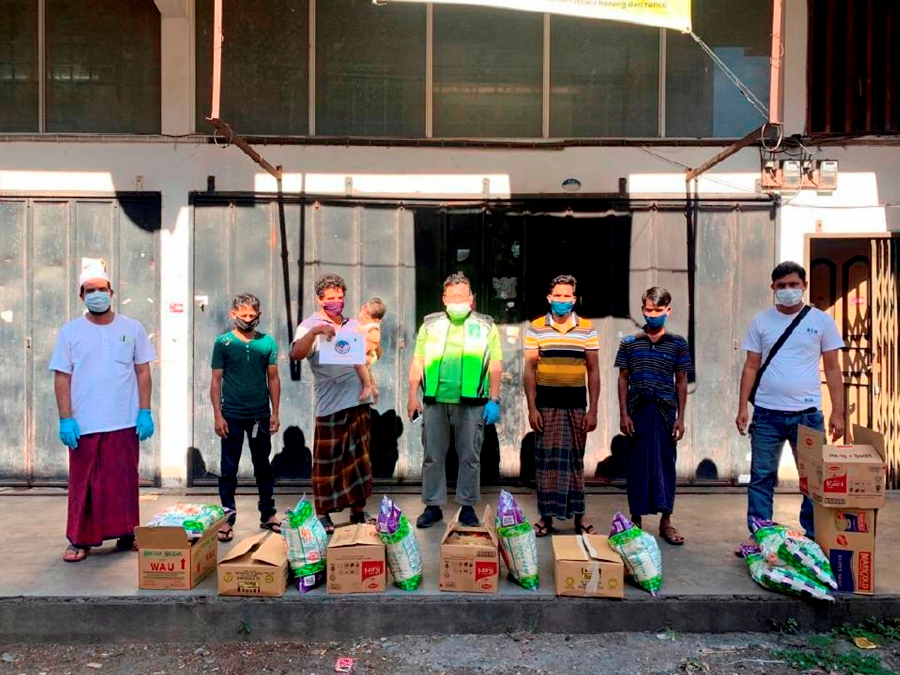.jpg)
Published by EMIR Research, image from Malay Mail.
In fighting the pandemic that still does not know its end, the government is inevitably in a tough position to curb the number of daily infections and not to worsen the economic crisis further that have impacted many especially the small and medium businesses (SMEs) and the own-account workers.
Malaysian government in being strong-willed to continue mitigating the spread of virus and in ensuring the rakyats remain vigilant and not complacent has extended the Movement Control Order (MCO) for another two weeks until May 12, while increasing the daily testing capacity.
Nonetheless, the drawback to this action is many businesses are still unable to resume operations that would result in further income losses and the second-order effect is the rise in unemployment as the employers are unable to retain them.
According to SME groups, the extension of MCO could result in job losses for around 2 million employees because the government’s wage subsidy programme would be insufficient to cover wage costs during the MCO.
The prediction is worse than what the Malaysian Institute of Economic Research (MIER) estimated and presented in its National Economic Outlook for 2020/2021, with an assumption the MCO would be lifted on April 28 – 1.46 million in the worst-case scenario and 28,590 in the best-case scenario.
So, it is reasonable to assume that job losses would be higher as movement restriction measure gets longer.
Even with the existing stimulus packages, the business owners feel like there is too many bureaucracies involved which makes the delivery system inefficient and not fast enough.
To contribute in helping the SMEs, the Employees’ Provident Fund (EPF) launched an Employer Covid-19 Assistance Programme (e-CAP) on April 23 in which businesses with certain criteria can opt for a deferment and restructuring of employer’s EPF contribution for the months of April, May and June this year. The deferred contribution can be settled over a maximum period of three months.
An e-commerce player, Lazada Malaysia also lent a helping hand by launching its own RM10 million stimulus package called ‘Pakej Kedai Pintar’ (Smart Shop Package) running from April to June to help 50,000 SMEs to join the online business.
Nonetheless, given the uncertain nature of the pandemic and unknown duration for businesses to recover, extended assistance would be needed for the businesses to sail through this trying time.
Given government’s determination in helping to ease financial burdens faced by the SMEs, what more can be done for them while balancing between saving lives and saving the economy?
1. Businesses that had been allowed to operate can now resume full operation
In line with the realisation that it is necessary to restart and revive the overall economic supply chain that will help businesses continue to operate fully, rebuild affected stocks and enable efficient delivery of services and goods to customers, the government has agreed that the sectors of the economy that have been authorised to operate during the first three phases of MCO to resume full operation of their business, without time constraints according to their specific industry requirements, effective from April 29.
However, the companies in these authorised sectors must comply with the Standard Operating Procedure (SOP) set for their respective sectors. Failure to comply will result in the immediate cancelation of the authorisation given to operate, and subject to legal action.
Based on a survey made by the Associated Chinese Chambers of Commerce and Industry of Malaysia on 916 SMEs, 80.2% of them said that they would need 3-6 months to recover once the MCO is lifted so imagine how long it would take if they are not allowed to resume earlier.
Nonetheless, complacency could be a challenge to the relaxation, according to the Health director-general Datuk Dr Hisham Abdullah.
This is when social responsibility plays a major part given the absence of vaccine with companies adhering to health precautionary measures, practising social distancing at workplace or provide the flexibility to work remotely from home if it is possible.
2. A comprehensive economic recovery plan
An Economic Recovery Plan currently discussed between the Ministry of Finance (MOF), Economic Planning Unit (EPU) and stakeholders from various industries needs to tackle the critical vulnerabilities faced by the households and businesses to ensure a holistic approach to recover the economy even after the MCO. Hopefully, the presentation of strategies would be tabled in the near future.
Not to be forgotten, the recovery plan should also target the most vulnerable group that is the self-employed such as the small traders who depend on daily operations to earn a living. Almost 50% of self-employed out of 168,182 respondents had lost their jobs, based on a special survey done by Department of Statistics (DOSM) during the first phase of MCO.
Short-term measures such as grants to help the small traders and local hawkers to sell food and beverages online in replacement of a physical one during fasting month have been accepted well. However, a longer-term approach is critically needed – to have businesses fully transferred onto digital platform as consumer behavior has likely changed.
Going forward, technological adoption by businesses should be a lesson learnt from the pandemic. Thus, higher allocation for industry digitalization through various e-commerce platforms needs to be considered in the medium-term to long-term recovery strategy. Relevant trainings for workers are also crucial to get them onboard so reskilling programmes through online-based courses can be arranged.
For the jobs lost because of the pandemic, the government could provide hiring subsidies to the employers in order to slowly recover the state of unemployment.
3. Switch on the critical mode for delivery system
As many policies that can be proposed, key to policy effectiveness is timely implementation.
The issue of red tape within the government needs to be resolved to ensure fast and efficient delivery mechanism since we are currently at a critical mode, not a normal mode.
According to the industry players, they had to go through multiple layers of approval before receiving funds for the wage subsidy programme.
Besides that, although it has been reported that a total of RM2.7 billion worth of loans has been approved for more than 5,000 SMEs as of April 15, there remains business owners who face difficulties to secure loans due to certain lending criteria set by the banks.
So, there is an urgent need to address these long-winded procedures to provide fairer mechanism so that businesses are able to survive.
All in all, targeted and inclusive policy responses coupled with timely delivery mechanism are the vital components in restarting the businesses that had been adversely impacted by the unprecedented health shock.
Nur Sofea Hasmira Azahar is research analyst at EMIR Research, a think tank focused on strategic policy recommendations based on rigorous research.

